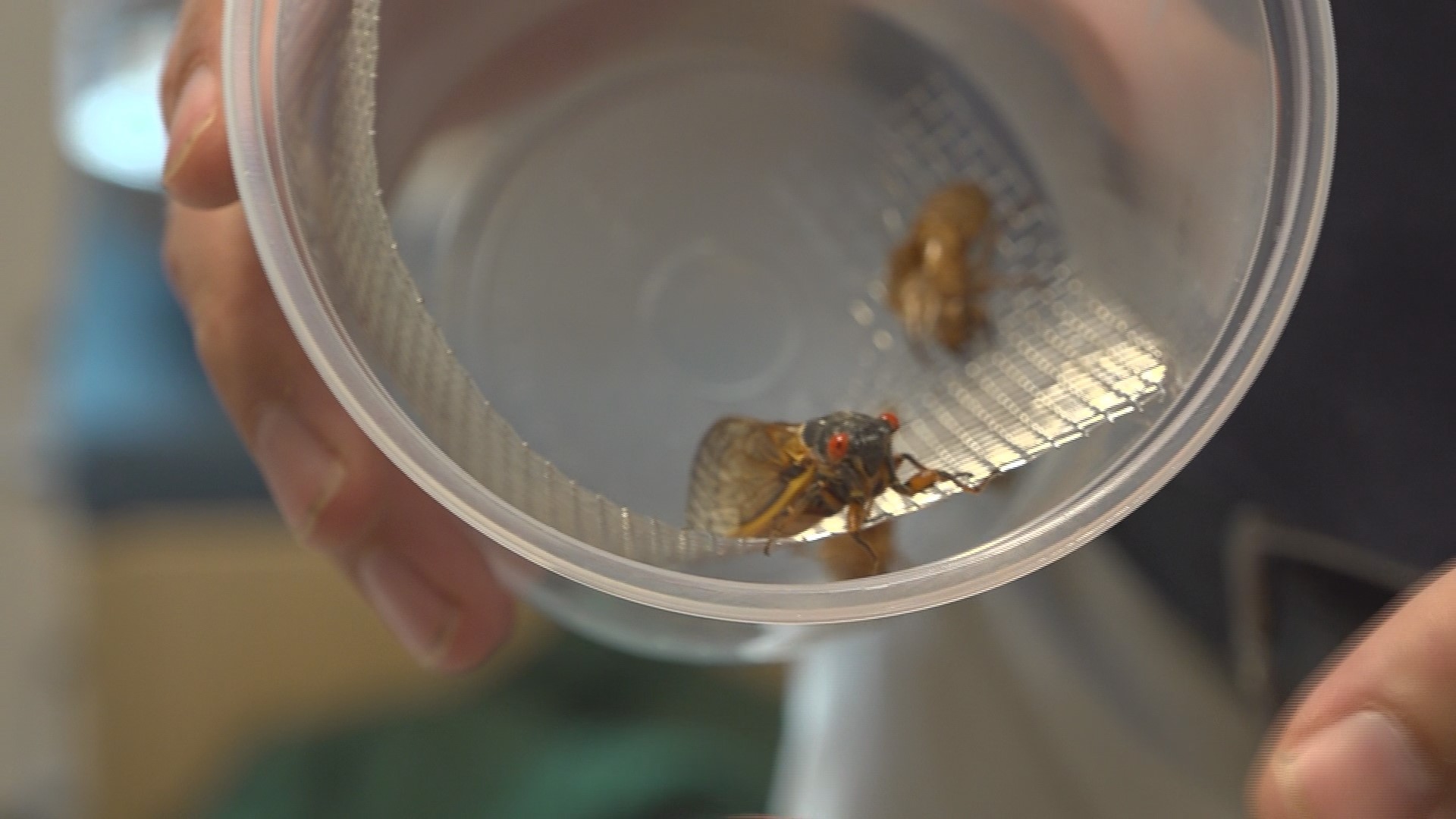MILLEDGEVILLE, Ga. — Every 13 years, these red-eye insects come out and fly into windows and annoy humans with their mating sound. They are making their return.
According to associate professor of biology, Dr. Bruce Snyder, with Georgia College & State University, he says we will see an emergence of periodical cicadas.
Periodical cicadas come out every 13 years. The last time there were cicadas in Georgia was in 2011.
Snyder says they weren't supposed to come out until May, but because it has been warm, they are popping out earlier. Synder says "They feed off sap in tree roots and tunnel about" and then they dig their way up onto the surface.
Periodical cicadas are different from annual cicadas, even in their appearance. Periodical cicadas are smaller, black, have red eyes and have a little bit of orange in their wings. Snyder says they will come out this year in large numbers.
"They're coming up in these huge numbers to try and avoid these predators. So, there are millions of them, they are going to be eaten by predators because they are very, very obvious. But the predators are going to fill up on them pretty quickly and then they're still going to be millions out there to go ahead and reproduce," Snyder said.
Snyder says there are certain trees these bugs are attracted to like pecan, maples and oak.
"They're feeding on trees and they're able to tell when we go through the season. And so they're able to track the seasons as they go by," Snyder said.
When they are ready to come out, they break out of their exoskeletons and start their lifecycle journey.
The bugs are harmless and are quite clumsy. Snyder says they will fly in windows, cars and even trees. Snyder says there will be a lot of them this year from reports he has seen.
"I've heard estimates between a million and a trillion. It depends on if you're talking about the whole brood or just in Georgia but lots and lots and lots of them," Snyder says.
Cicadas are classified in Broods. These cicadas are a part of the Great Southern Brood XIX (19), which is the largest geographic brood in the South.
Snyder says once the male cicadas enter the trees, they make that loud noise many dislike hearing and mate with the female on tree leaves.
If you see cicadas in your area, you can record how many you see on the apps; iNaturalist and Cicada Safari.

